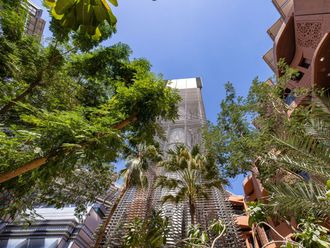Manama: Bahrain has confirmed the death by drowning of a 23-year-old Bahraini national in January, refuting a report that he had been tortured to death.
Nayef Yousuf, the head of Public Prosecution, announced that further investigation into the cause of death in the case of Yousuf Ahmad Abbas has taken place in light of a second autopsy that appears to have been conducted through unofficial channels and came to light earlier this week, a government statement said.
"The Medical Examiner reconfirmed that the cause of death of the deceased, whose body was found floating in the sea near Amwaj in the Galali area on January 13, was drowning. It was supported by the photographic evidence both at the crime scene and at the autopsy."
According to the statement released by the Information Affairs Authority, "the family was informed, upon completion of the original autopsy on January 13, they could retrieve the body for burial."
"However, at that time, the family's lawyer requested an additional autopsy to be conducted by a doctor from abroad. A source at the morgue said the family was concerned about some marks on one forearm and some small incisions made during the autopsy that were used to assess whether there were any subcutaneous injuries under discolored areas on one arm."
Contact between the family and the lawyer with the International Rehabilitation Council on Torture (IRCT) resulted in Dr Sebnem Korur Fincanci, a professor in forensic medicine, entering Bahrain on a tourist visa in order to conduct a secondary autopsy on the deceased, the public prosecutor said.
"That examination took place on January 21 when the body was being prepared for burial. The pathologist today reaffirmed that decomposition continues after death even if the body is refrigerated, so the condition of the body would be expected to reflect some changes."
The family's lawyer submitted the report by Fincanci to the prosecutor to include it in the investigation into Yousuf's death.
"Based on the lawyer's submission of the second medical examination to the Public Prosecution earlier this week, a copy of that report was sent to the pathologist assigned to the case for review and comparison," the statement said.
"The medical examiner concluded that what was presented in his report was contradictory to the results of Dr. Fincanci's postmortem and photographs, as well as her report of the crime scene and photographs that were included. Moreover, photographs presented with Dr. Fincanci's report had technical flaws that raised questions about their authenticity."
The prosecutor said that the report presented by the lawyer was based on the presumption of torture prior to death by drowning due to bruises on the left arm along with scratches on the right thigh and left foot.
"However, the idea that the death was the result of unconsciousness due to electrocution was only an assumption and that the report was flawed in that it did not take into consideration some factors like the toxicology results that indicated the presence of prescription medication for Schizophrenia.
During the initial investigation, the Public Prosecution took the statements of the deceased's father and cousin who stated that he suffered from Schizophrenia and always went to the seashore in the area where his body was found. The doctor treating the deceased confirmed the medication he was taking which was consistent with the toxicology reports."
In light of the results of the coroner's presentation, the Public Prosecution has asked to question the family's lawyer and will also request the attendance of Dr. Fincanci to question her about the conditions of the autopsy conducted and the procedures taken to reach the conclusion, the statement said.












